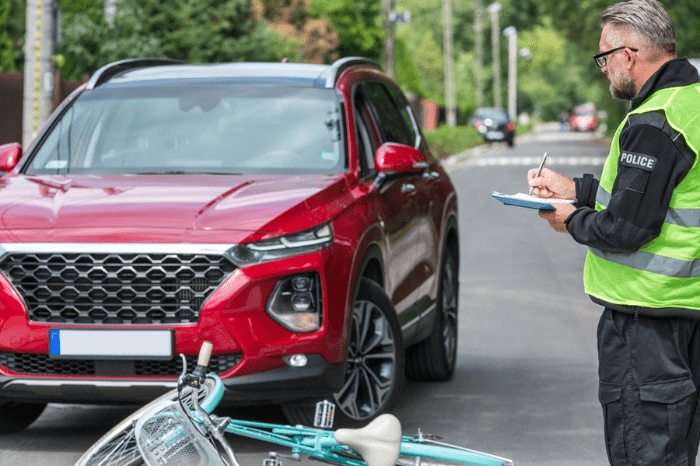Complete the form to schedule a free consultation with a traffic lawyer
Getting a Ticket With Diplomatic Immunity

Diplomatic immunity is a legal principle that grants certain privileges and immunities to diplomats, shielding them from the jurisdiction of the host country’s laws. This concept, rooted in international law and diplomatic relations, has sparked curiosity and questions, particularly regarding traffic law enforcement.
What happens if a person with diplomatic immunity is pulled over for a traffic violation? In this article, we will explore the implications, exceptions, and complex nature of dealing with traffic infractions involving diplomats.
Diplomatic Immunity: A Brief Overview
Diplomatic immunity is a concept that provides protection to diplomats, their families, and diplomatic staff from legal jurisdiction in the host country. It ensures the smooth functioning of diplomatic missions and promotes open communication between nations. While it grants diplomats certain privileges and immunities, it is not absolute and is subject to certain limitations and exceptions.
Traffic Law and Diplomatic Immunity
When a person with diplomatic immunity is pulled over for a traffic violation, the situation becomes multifaceted due to the intersection of domestic law and international relations. Here are some key considerations:
- Notification of Diplomatic Status: Law enforcement officers are generally trained to recognize diplomatic license plates, special identification cards, or diplomatic passports, indicating the individual’s diplomatic status. However, in some cases, diplomatic immunity may not be immediately apparent, which means that law enforcement will have to conduct a routine investigation as a response to a traffic violation.
- Protocol and Courtesy: When a diplomat is pulled over, law enforcement officers are often instructed to exercise caution and respect due to the diplomat’s status. This includes maintaining professionalism and treating the individual with courtesy. Still, as stated earlier, diplomatic immunity has its limits, which can quickly be tested based on the severity and frequency of the infraction(s).
- Contacting the Embassy or Consulate: Once a diplomat’s status is confirmed, law enforcement officers may need to contact the relevant embassy or consulate to inform them of the traffic violation. Diplomatic missions may have their own protocols and procedures for handling such situations.
- Diplomatic Channels: The host country’s government, through its diplomatic channels, may address the incident with the diplomat’s home country. This diplomatic dialogue aims to find a resolution while upholding the principles of diplomatic immunity. As you can imagine, with the intersection of two legal systems at play, this process can be complex.
The U.S. The Department of State, which oversees foreign mission members enjoying diplomatic immunity, typically requires those foreign members to pay and attend to tickets received as a result of violating local traffic laws in their respective countries. In order for diplomats to appear in court, immunities must be temporarily waived, which the Department of State is willing to do in order for the traffic infraction to be resolved.
Exceptions and Limitations
It is important to note that diplomatic immunity is not absolute and is subject to exceptions and limitations. These exceptions typically include grave crimes or offenses that pose a serious threat to public safety or security. In such cases, the host country may request a waiver of immunity from the diplomat’s home country, allowing the individual to be subject to local legal proceedings.
However, traffic violations are generally not considered serious offenses that warrant the waiver of diplomatic immunity. The rationale behind this is to prevent diplomatic missions from being unduly burdened with legal matters that could hinder their diplomatic functions. In other words, there is little reason to raise tensions between nations over a speeding ticket.
Consequences and Resolutions
In most cases involving traffic violations, diplomats with immunity are generally not prosecuted or penalized by the host country’s legal system. Instead, diplomatic channels are relied upon to resolve the matter. The diplomat’s home country may choose to handle the incident internally by imposing disciplinary actions or taking appropriate measures to address any perceived misconduct.
It is important to remember that diplomatic immunity is not a free pass for diplomats to act with impunity. Diplomats are expected to respect the laws and regulations of the host country and adhere to traffic rules to the best of their ability.
What You’ve Learned
Diplomatic immunity is a complex and fascinating aspect of international law that intersects with traffic law enforcement. While diplomats enjoy certain privileges and immunities, including protection from prosecution for minor traffic violations, exceptions exist for serious crimes. Understanding the intricacies of diplomatic immunity is crucial for law enforcement agencies, diplomats, and the general public to ensure a balance between international relations and upholding the rule of law.
Whether or not you’re an international diplomat, you should always contest your traffic tickets. Click here to learn how you can fight your traffic ticket.
